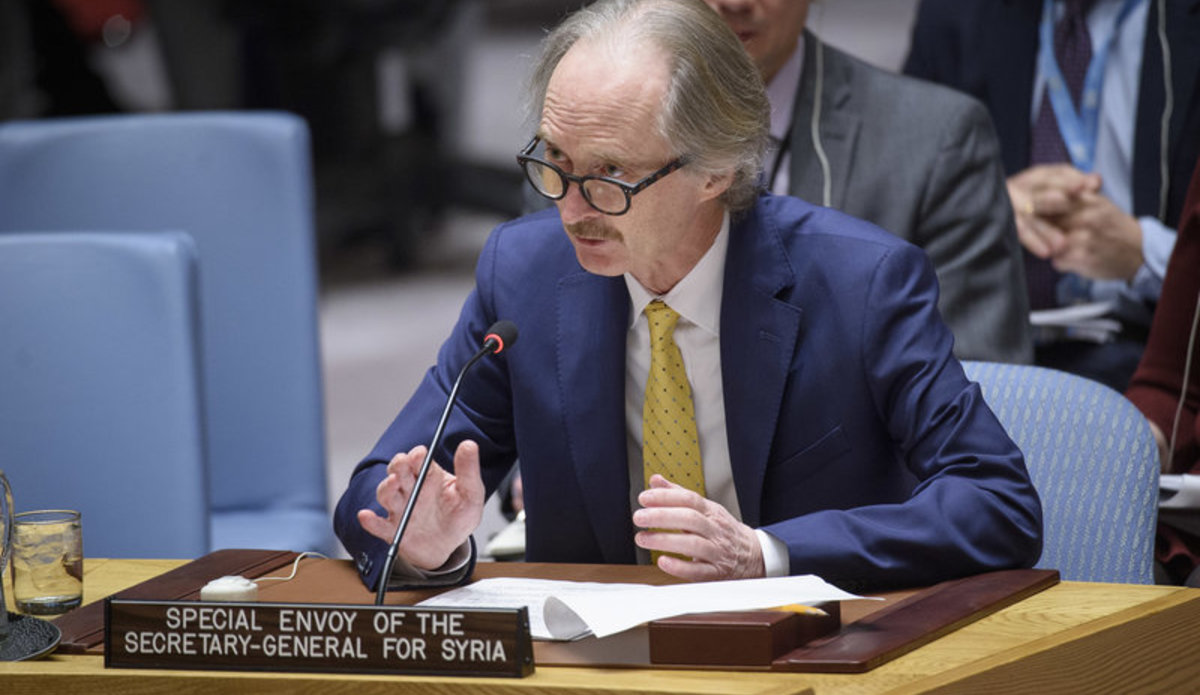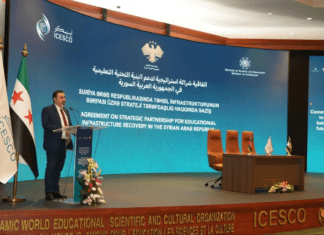
The UN Security Council convened an emergency session on Tuesday night to address the intensifying crisis in Syria, following a wave of violent escalations in Aleppo, Idlib, and Hama. Geir Pedersen, the UN Secretary-General’s special envoy to Syria, described the situation as “extremely volatile and dangerous,” signaling a significant shift in the status quo that had endured for four years.
Pedersen reported that vast territories, including Aleppo, Syria’s second-largest city, are now controlled by revolutionary forces and Hayat Tahrir al-Sham (HTS), which the Security Council designates as a terrorist organization. These areas are home to an estimated seven million people. Pedersen also highlighted escalating violence on multiple fronts, including clashes between the Turkish-backed Syrian National Army (SNA) and the US-backed and PKK-aligned Syrian Democratic Forces (SDF), as well as continued Israeli airstrikes.
“Further military escalation risks mass displacement and civilian casualties,” Pedersen warned, calling for de-escalation, adherence to international law, and the resumption of a credible political process to resolve the Syrian crisis.
The session featured pointed exchanges among international representatives. The Russian delegate labeled the recent revolutionary advances a “terrorist attack” and accused Ukrainian intelligence of supporting HTS forces. Meanwhile, US Deputy Representative Robert Wood refuted allegations of American involvement in the clashes, reiterating Washington’s condemnation of Assad’s regime for perpetuating the conflict.
“Listing HTS as a terrorist organization does not justify the atrocities of the Assad regime and Russia,” Wood stated, adding that Assad’s refusal to engage in the political process stipulated by UN Security Council Resolution 2254 has only prolonged Syria’s suffering. He also accused Russia and Iran of blocking avenues for peace.
Turkey’s Deputy Ambassador Seren Ozgur emphasized the need for de-escalation and called for a Syrian-led political solution. “Without a genuine process of national reconciliation, the country will remain trapped in a cycle of violence, instability, and suffering,” she said.
UN agencies provided stark assessments of the humanitarian toll. The World Health Organization (WHO) reported that fewer than eight hospitals remain operational in Aleppo, down from 100 just a week ago. Overcrowded shelters have heightened the risk of waterborne and respiratory diseases, while 65 NGOs have suspended their activities due to insecurity.
Jeremy Laurence, spokesman for the High Commissioner for Human Rights, described “very worrying incidents” of civilian casualties, particularly among women and children. A UN report confirmed tens of thousands of people have been displaced, compounding the country’s suffering as winter looms and aid access remains severely restricted.
The session concluded with calls for accountability and renewed dialogue. Pedersen stressed the importance of linking de-escalation efforts to a comprehensive political process, warning that continued conflict management without resolution would only perpetuate instability.
“The past 14 years have shown there is no military solution to this conflict,” Pedersen said. “We must ensure a collaborative approach to combat terrorist groups while safeguarding the rights and lives of Syrian civilians.” The Security Council’s discussions underscored the need for urgent action to address Syria’s escalating crisis, ensure civilian protection, and reinvigorate stalled political negotiations.








